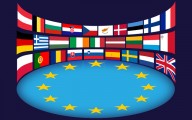European Parliament Advances Copyright Bill Despite Critics
September 14, 2018
The European Parliament adopted a draft copyright bill to require tech platforms to pay more for music and news produced by media companies. If the law passes, EU countries will have two years to comply. Tech companies continue to fight against the bill’s final adoption; EDiMA, a trade group representing Amazon, Apple, Facebook and Google among others, stated that the EU “decided to support the filtering of the Internet to the benefit of big businesses in the music and publishing industries despite huge public outcry.”
The Wall Street Journal reports that, while the European Publishers Council said the decision was “a great day for the independent press and for democracy,” Mozilla stated it “marks a very sad day for the Internet in Europe.”

With the law’s provisions, news publishers would have “the right to negotiate payment for ‘digital use’ of their content by tech firms,” and “require online-video sites like Google’s YouTube to pay ‘proportionate remuneration’ for their works, and take measures to prevent uploads of content for which it doesn’t have a license.” Publishers say social media and aggregators undercut their own efforts to build a subscriber base.
The impact of such a law is unknown. WSJ notes that, “when Spain passed a similar law, Google shut down its local Google News service” and “when Germany passed a copyright law, publishers gave Google licenses for free rather than lose traffic.”
The tech industry argues that being responsible for “ensuring that no unlicensed copyright material is uploaded to their services would create a costly obligation that would discourage smaller companies from offering services,” but the bill’s supporters say the law’s language exempts “small and micro” platforms. The law will also “exempt noncommercial encyclopedias like Wikipedia from the rules.”
Despite that exemption, TechCrunch reports that the Wikimedia Foundation is dead-set against the European proposal. “Next week, the European Parliament will decide how information online is shared in a vote that will significantly affect how we interact in our increasingly connected, digital world,” stated Wikimedia Foundation chair María Sefidari Huici. “We are in the last few moments of what could be our last opportunity to define what the Internet looks like in the future.”
The law’s most controversial articles are Article 11, “which proposes a neighboring copyright for snippets of journalistic content — requiring news aggregators such as Google News to gain a license from the publisher to use this type of content … [and] Article 13; which seeks to shift liability for platform users’ copyright infringements onto the platforms themselves.” With regard to the latter, opponents say it will force them to use filters “to monitor all content before it’s posted, having a chilling effect on Internet expression.”
Huici singled out Article 13 as encouraging the use of “costly, often biased systems to automatically review and filter out potential copyright violations on their sites.” She pointed out the case of a German professor who received repeated copyright violation notices for using public domain music from Beethoven, Bartók, and Schubert in videos on YouTube.

No Comments Yet
You can be the first to comment!
Sorry, comments for this entry are closed at this time.